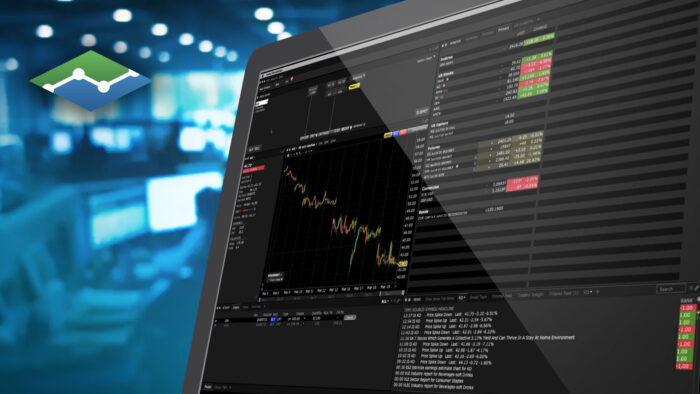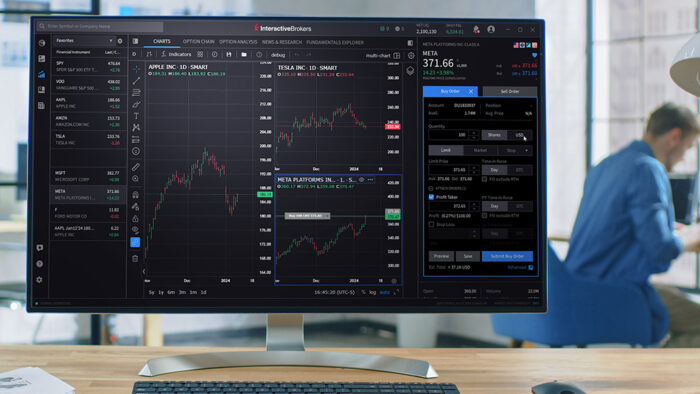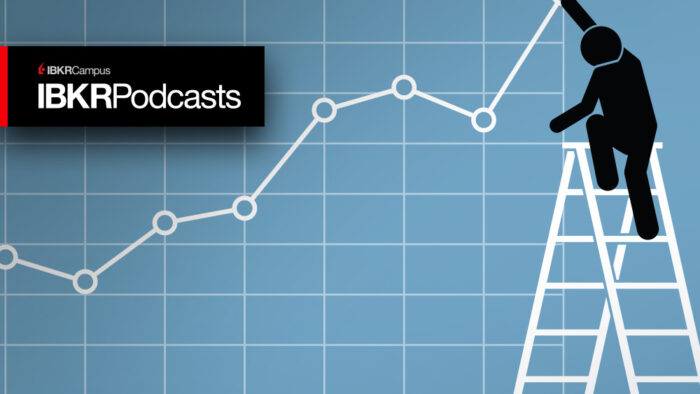Originally posted, 29 November 2023 – Global markets in 2024: Chain reactions
Facing a softening global economy, investors have the opportunity to maintain market exposure by focusing on quality securities and constructing diversified portfolios, argues Global Head of Multi-Asset Adam Hetts in his 2024 outlook.
After a surprisingly robust equities market in 2023, we believe the global economy is entering the new year in a worryingly fragile state, and it is our view that defensive positioning is merited. Alongside this immediate concern is the need to capitalize on opportunities derived from what we see as a paradigm shift driven by three secular forces: Geopolitical realignment, transitioning demographics, and the return of the ‘cost of capital’ thanks to higher interest rates.
Fortunately, current market dynamics create sufficient opportunities to remain defensively positioned while also maintaining exposure to long-term compounding opportunities in the secular themes reshaping the global economy. We see risk in keeping cash on the sidelines as history tells us that 1) even at today’s enticing rates, cash significantly underperforms a balanced portfolio from the start of economic weakness through initial recovery, and 2) increasing interest rate risk after central banks begin easing policy tends to be too late.
A likely series of forthcoming stop-and-go economic readings suggests that quality should be prioritized across multi-asset portfolios and informs our current defensive positioning. For stocks, that means exposure to companies capable of consistently growing earnings across the cycle. Within fixed income, investors can again lean into investment-grade bonds for income generation and diversification against equities. Cross-asset diversification takes on elevated importance under such conditions, with alternative strategies uncorrelated to equities and bonds also playing a role.
Chain reactions
When seeking to explain 2023’s buoyant economy, the long and variable lags of monetary tightening are often referenced. So far in this cycle, these lags are proving to be longer and more variable than ever. An explanation partly lies in the resilience of the U.S. consumer – long a growth engine for the global economy. We fear this won’t last, especially with pandemic-era stimulus exhausted and recent consumption increasingly fueled by debt. We expect 2024 to be a year of chain reactions as higher rates and a weakening consumer converge with changes in inflation, employment, growth, and geopolitics.
In most cycles around the world, recessions typically lag peak policy rates by a few quarters or even years. Figure 1, for example, demonstrates the link between the fed funds rate and prior recessions. Further clouding the current outlook are the ongoing withdrawal of central bank liquidity, the late-year surge in real interest rates, and a persistently strong U.S. dollar, all of which are augmenting the restrictive effects of rate hikes.
Figure 1: Peak rates approach, but the lagged impact is a big concern

Source: Bloomberg, as of 31 October 2023. In previous cycles a U.S. recession typically followed a peak in the federal funds rate.
Equities: Quality companies offer both offense and defense
A unique feature of pandemic-era equity markets is the growth-oriented mega-cap Internet and tech stocks that have led equities higher while simultaneously exhibiting characteristics typically associated with more defensive stocks: steady earnings, stable margins, and strong balance sheets. Exposure to such traits at this stage of the cycle potentially insulates portfolios from earnings downgrades while also positioning them to benefit from the onward march of themes like artificial intelligence (AI) and cloud computing.
Importantly, as the power and efficiencies of innovative technologies are harnessed across sectors, the earnings growth attributable to them will likely become more dispersed throughout the equities universe. Facing a slowing economy in 2024, we anticipate that companies will aggressively adopt these productivity-enhancing innovations in an effort to defend, and in some cases grow, margins.
While restrictive monetary policy will undoubtedly continue to weigh on the economy, equities proved resilient in 2023 as companies adapted to defend margins. We expect this to continue. Furthermore, geopolitics, demographics, and a higher-for-longer rate environment create both risks and opportunities for equities. It is not too early for active investors to identify which companies will be on the right side of these trends. As figure 2 shows, ‘quality’ global companies typically outperform the broader market in periods of recession in most countries.
Figure 2: Quality has outperformed the broader global market in recessionary environments

Source: Bloomberg, as of 31 October 2023. Relative performance of the MSCI World Quality Index versus the broader MSCI World Index. Grey bars indicate periods when global GDP growth was less than 2%. Past performance does not predict future returns.
Taking what bonds have to offer
The abrupt ascent of bond yields and commensurate falling prices were far from optimal, but the result is that fixed income can once again serve its traditional role in a balanced portfolio. With policy rates having risen by hundreds of basis points, central banks globally finally have the room to reduce rates should the economy contract.
Similarly, with the yield on the 10-year U.S. Treasury well above 4%, bonds could generate capital appreciation to offset a portion of equities’ drawdown in a risk-off scenario (see figure 3). Higher yields in risk-free securities have reduced the incentive to move out of investment-grade sovereign, corporate, and securitized bonds. However, the potential for attractive risk-adjusted returns in less cyclically exposed high-yield segments of the market means that these should also be actively implemented in investors’ portfolios.
Figure 3: Rapidly rising rates have narrowed the gap between bond and equities earnings’ yields

Source: Bloomberg, as of 31 October 2023. Past performance does not predict future returns.
The long game
The cycle matters and should factor into decision making. But we believe the key to investment success is maintaining a five- to ten-year horizon. Through that lens we remain bullish on financial markets. We are finding opportunities across asset classes and believe in the benefits of a diversified portfolio. However, navigating the expected and unexpected chain reactions of 2024 will require deep research cap
abilities to truly understand their economic impact, identify resulting market dislocations, and help clients move towards a brighter investment future.
Disclosure: Janus Henderson
The opinions and views expressed are as of the date published and are subject to change without notice. They are for information purposes only and should not be used or construed as an offer to sell, a solicitation of an offer to buy, or a recommendation to buy, sell or hold any security, investment strategy or market sector. No forecasts can be guaranteed. Opinions and examples are meant as an illustration of broader themes and are not an indication of trading intent. It is not intended to indicate or imply that any illustration/example mentioned is now or was ever held in any portfolio. Janus Henderson Group plc through its subsidiaries may manage investment products with a financial interest in securities mentioned herein and any comments should not be construed as a reflection on the past or future profitability. There is no guarantee that the information supplied is accurate, complete, or timely, nor are there any warranties with regards to the results obtained from its use. Past performance is no guarantee of future results. Investing involves risk, including the possible loss of principal and fluctuation of value.
Disclosure: Interactive Brokers
Information posted on IBKR Campus that is provided by third-parties does NOT constitute a recommendation that you should contract for the services of that third party. Third-party participants who contribute to IBKR Campus are independent of Interactive Brokers and Interactive Brokers does not make any representations or warranties concerning the services offered, their past or future performance, or the accuracy of the information provided by the third party. Past performance is no guarantee of future results.
This material is from Janus Henderson and is being posted with its permission. The views expressed in this material are solely those of the author and/or Janus Henderson and Interactive Brokers is not endorsing or recommending any investment or trading discussed in the material. This material is not and should not be construed as an offer to buy or sell any security. It should not be construed as research or investment advice or a recommendation to buy, sell or hold any security or commodity. This material does not and is not intended to take into account the particular financial conditions, investment objectives or requirements of individual customers. Before acting on this material, you should consider whether it is suitable for your particular circumstances and, as necessary, seek professional advice.
Disclosure: Bonds
As with all investments, your capital is at risk.
Disclosure: Forex
There is a substantial risk of loss in foreign exchange trading. The settlement date of foreign exchange trades can vary due to time zone differences and bank holidays. When trading across foreign exchange markets, this may necessitate borrowing funds to settle foreign exchange trades. The interest rate on borrowed funds must be considered when computing the cost of trades across multiple markets.













